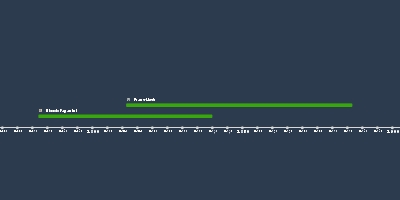Giacomo Puccini (1 jan 1858 ano – 1 jan 1924 ano)
Descrição:
an Italian opera composer who has been called "the greatest composer of Italian opera after Verdi".Innovation and Popularity—“Repetoire” versus “Canon” versus “Repertory”
A. The relationship between the composer (artist) and listener was an issue at the end of the nineteenth century.
B. Puccini’s operas fall into this question.
C. The divergence of concert repertory (music performed for audiences) and canon (those considered worthy of academic study) took place over the twentieth century.
D. Puccini wrote for the concert repertory.
X. Puccini’s Ascent
A. Puccini’s first success was Manon Lescaut.
B. Like Verdi, he had three major operatic successes at the midpoint of his career.
C. One is La bohéme, based on a popular French novel.
D. Another of the trio was Tosca (1900), based on a play created for Sarah Bernhardt.
E. The third was Madama Butterfly, which saw four versions between 1904 and 1906.
F. The aria “Un bel dí” from Madama Butterfly is one of the most popular in all Puccini. It
reflects her faith in Pinkerton’s return.
G. The idea of watching such tragedy—and enjoying it (after all, the viewers do pay to go to the opera)—can be seen as voyeurism, and a type of catharsis.
H. Puccini’s next opera, La fanciulla del West, premiered at the Met (New York City), and three
one-act operas were written for that venue in 1918.
I. His final opera, Turandot, also deals with Orientalism and feminine humiliation.
Adicionado na linha do tempo:
Data:
1 jan 1858 ano
1 jan 1924 ano
~ 66 years
